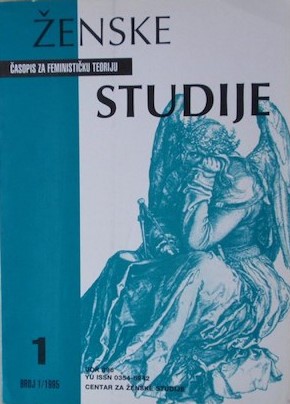Opozicija priroda/kultura kao “prirodna” definicija i interpretacija polne razlike — Levi-Strosova projekcija iskona kulture kao društvenog ugovora između muškaraca
THE OPPOSITION BETWEEN NATURE AND CULTURE AS THE “NATURAL” DEFINITION AND INTERPRETATION OF SEXUAL DIFFERENCE - CLAUDE LEVI-STRAUSS’ PROJECTION OF THE ORIGINS OF CULTURE AS THE SOCIAL CONTRACT BETWEEN MEN
Author(s): Žarana PapićSubject(s): Gender Studies, Gender history, Sociology of Culture
Published by: Centar za ženske studije & Centar za studije roda i politike, Fakultet političkih nauka, Beograd
Keywords: nature; culture; physis/nomos; sexual difference; incest taboo; exogamy; exchange of women; sexuality; social contract
Summary/Abstract: In this article the fundamental role of sexuality, gender and sexual difference is stressed as the basis of Western metaphysics’ legitimization. Furthermore, its aim is to argue that these features represent one of the constitutive conceptual tools in constructing and interpreting the human world of meanings. In this context the central point of problematization is Claude Levi-Strauss' cultural projection of the origins of culture, that is his theory of incest taboo, exogamy and the exchange of women. It is pointed out that in his anthropological model the mechanism of global passage from nature to culture is grounded on one sole decisive factor, on the “naturally” instinctive, incestuous and polygamous male sexuality. In this frame of thinking women represent nothing but objects of the exchange between men, mere instruments in mediating the passage from male “nature” to male “culture”. Consequently, on the basis of these arguments two conclusions are drawn: 1. Levi-Strauss' global concept of the passage from nature to culture is deeply gender based and therefore represents a form of gender particularism', 2. in constructing this kind of interpretation of the origins of culture Levi-Strauss, in f act, created a hypothetical reconstruction of the primal stale of culture as the social contract between men, from which women are excluded, being reduced to mere instruments of exchange.
Journal: Ženske studije : časopis za feminističku teoriju
- Issue Year: 1995
- Issue No: 1
- Page Range: 155-196
- Page Count: 42
- Language: Serbian

